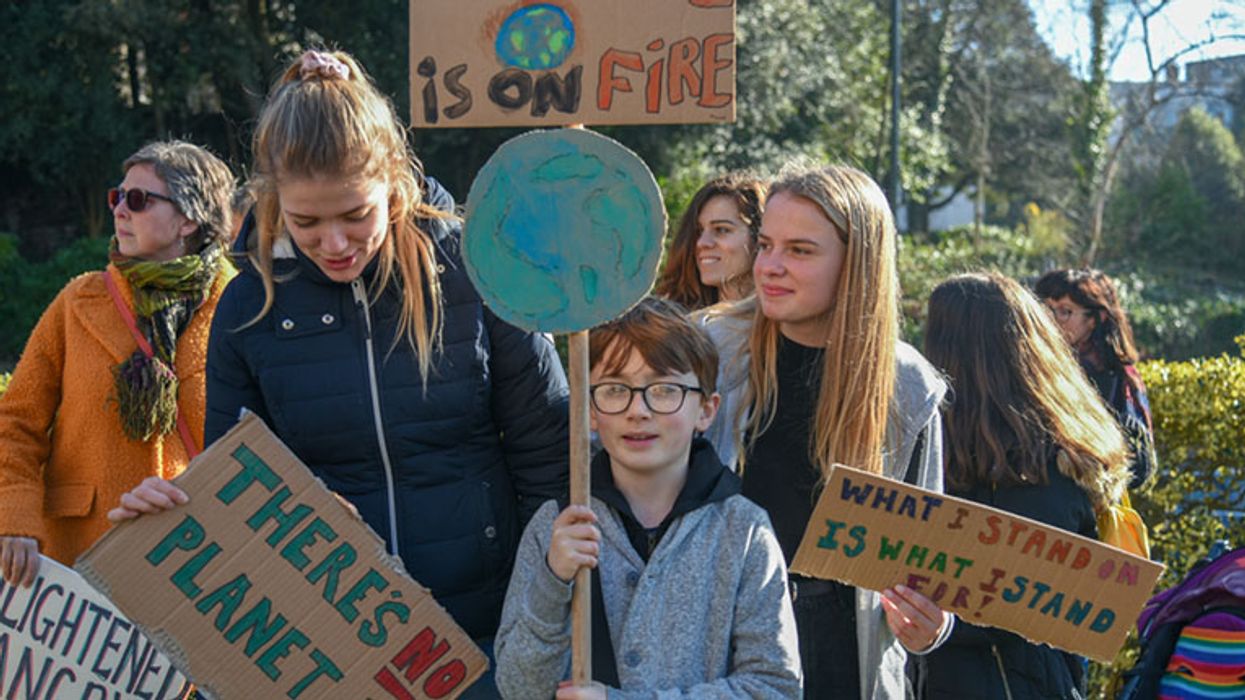Scientists warn that a 'climate endgame' is 'dangerously underexplored'


Scientists from around the world are warning that the direst consequences from unchecked climate change have not received the scrutiny that they deserve, The Guardian reported on Monday.
A peer-reviewed study published in the Proceedings of the National Academy of Sciences indicates that a "climate endgame" involving civilizational collapse or worse – human extinction – is "dangerously underexplored." These concerns are underpinned by extreme weather events that are increasing their frequency faster than models had predicted as well as tangential impacts or "knock-off effects" of global warming such as war, disease, and famine.
Dubbed "the four horsemen" of "climate endgame," these factors provide “ample reasons” to begin preparing for potentially apocalyptic scenarios.
READ MORE: 'Climate collapse is here': Dozens feared dead in 'one of the worst' floods in Kentucky's history
“Facing a future of accelerating climate change while blind to worst-case scenarios is naive risk management at best and fatally foolish at worst,” the researchers said, stressing that "analyzing the mechanisms for these extreme consequences could help galvanize action, improve resilience, and inform policy."
The team, led by Doctor Luke Kemp at the University of Cambridge’s Centre for the Study of Existential Risk, believes that the climate endgame should be taken as seriously as the possibility of a nuclear winter.
While there are uncertainties in forecasting, the trends are clear. Fossil fuel emissions are heating the planet, and humanity is quickly running out of time to alter course.
“There are plenty of reasons to believe climate change could become catastrophic, even at modest levels of warming. Climate change has played a role in every mass extinction event. It has helped fell empires and shaped history," Kemp said. “Paths to disaster are not limited to the direct impacts of high temperatures, such as extreme weather events. Knock-on effects such as financial crises, conflict and new disease outbreaks could trigger other calamities.”
READ MORE: Pressure mounting on president to declare a climate emergency
Homo sapiens are already in uncharted territory. Atmospheric carbon dioxide, for example, has topped 416 parts per million – the highest level in at least the last million years. Prior to the Industrial Revolution, CO2 hovered around 280 parts per million. Modern humans are believed to have evolved around 200,000 years ago.
"If global energy demand continues to grow rapidly and we meet it mostly with fossil fuels, human emissions of carbon dioxide could reach 75 billion tons per year or more by the end of the century. Atmospheric carbon dioxide could be 800 ppm or higher—conditions not seen on Earth for close to 50 million years," states the National Oceanic and Atmospheric Administration.
As CO2 and its supercharged counterpart methane accumulate, average temperatures will rise.
"The current trend of greenhouse gas emissions would cause a rise of 2.1-3.9C by 2100. But if existing pledges of action are fully implemented, the range would be 1.9-3C. Achieving all long-term targets set to date would mean 1.7-2.6C of warming," The Guardian noted.
"Temperatures more than 2C above pre-industrial levels had not been sustained on Earth for more than 2.6m years, they said, far before the rise of human civilization, which had risen in a 'narrow climatic envelope' over the past 10,000 years," it added.
Murkier still is so-called tipping points, when the planet's ability to regulate itself breaks.
"A small rise in global temperature results in a big change in the climate, such as huge carbon emissions from an Amazon rainforest suffering major droughts and fires. Tipping points could trigger others in a cascade and some remained little studied, they said, such as the abrupt loss of stratocumulus cloud decks that could cause an additional 8C of global warming," the scientists said.
That would be a calamity for life on Earth, which has faced annihilation in the past.
“There are warnings from history. Climate change has played a role in the collapse or transformation of numerous previous societies and in each of the five mass extinction events in Earth’s history," the analysis explained.
The difference between now and then, however, is that the causes came from natural sources.
“The more we learn about how our planet functions, the greater the reason for concern,” said Professor Johan Rockström of the Potsdam Institute for Climate Impact Research in Germany. “We increasingly understand that our planet is a more sophisticated and fragile organism. We must do the maths of disaster in order to avoid it.”
READ MORE: Students announce global protest to 'disrupt business as usual' as climate destabilizes